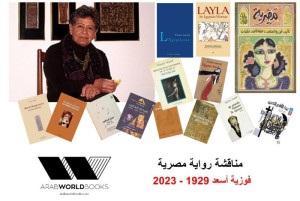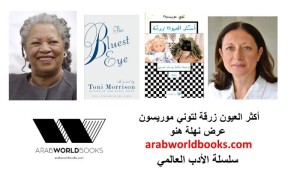source ahram weekly
Book: Khizanat Al-Kalam
Author: Gamil Attiya Ibrahim
Reviewed by Youssef Rakha
Khizanat Al-Kalam (The Safe of Words), Gamil Attiya Ibrahim, Cairo:Dar Al-Hilal, the Hilal Novels series, May 2000. pp197
Globalisation is a dubious concept, rife with dangers and contradictions. This, at least, is the message of this novel -- and a message there must be, once an author subscribes to the widespread, if erroneous, belief that a novelist's job is to express a nationalist or a patriotic point of view.
Gamil Attiya Ibrahim's latest novel -- an enclosed structure of safe, and hence un-provocative words -- is a repetitive, simplistic expression of latter-day social and political concerns. It is, however, paradoxically an instantly engaging read. It invites as much speculation on the meaning and value of being Egyptian at the turn of the 21st century as it does on the thin line that separates popular literary appeal from mediocrity. This, it should be emphasised, is the same line that separates a writer's commendable sense of belonging to a culture from his unjustified profession of possessing spurious popular wisdom, which invariably finds expression in that culture's most banal symbols and representations.
The novel's readability largely derives from Ibrahim's sensational plot, an uninspired take on the typical detective novel that nonetheless manages to be unpredictable. The novel opens with Abid Zoughli, an aging scholar-turned-librarian, arguing with his nephew, the young physician Samih El-Dahshouri, who has lucrative plans for the family inheritance, namely the library over which his uncle presides and the many invaluable manuscripts it contains. Together with his fiancée, Marina, the daughter of a shady businessman, and his -- surprise, surprise --Israeli former wife, Samih is negotiating a deal for the sale of the library, against the wishes of his mother and his uncle. When their relationship deteriorates and they separate from each other, Marina manages -- through her clandestine dealings with the aptly named, if dangerously suspicious, David -- to implicate Abid in an antique-smuggling law suit in which he soon proves his innocence with the help of his many admirers. Marina will eventually take off to Israel, but before she goes the entire structure must fall apart, and Samih's stylish, and hitherto innocuous, Asian-American-Middle-Eastern maid has a crucial part to play in the unexpected, drawn-out end.
The action proceeds through a framework of multiple viewpoints, and, in this, frustratingly, not only facts but also their interpretations are repeated by different characters. Concerning Samih's heartless desire for money, for example, on page five Abid says that, "Selling the library is more important to him than my health," while on page 13 Samih admits, "My goal is money and greed is my drive ... I am greedy for the flat, the buildings and the library."
Had Ibrahim adopted a more straightforward first-person approach (through Abid) and dealt with the same topics from a more intimate standpoint, his book might have ranked among such contemporary classics as Bahaa Taher's Al-Hob fil Manfa (Love in Exile). Instead, his attempts at plurality render a genuine predicament unconvincing.
But perhaps the novel's most profound disappointment is Ibrahim's lack of interest in real people and in what they think and do. From the novel's first few sentences, the two central characters, much like the rest of Ibrahim's small cast, remain superficial: an erudite and respectable elderly man, the nostalgic representative of the literary intellectual of the past; and a young physician, the scientifically oriented, ruthlessly ambitious intellectual of the future. The role of Samih's multicultural maid-cum-spy is counterbalanced by the presence of Naffoussa, Abid's uneducated but intelligent and devoted servant.
Marina is similarly counter-weighted by Elizabeth, a young foreign Arabist who has solicited Abid's help in her research, and she is the novel's only example of somebody who is both foreign and good, or at least neutral, from the Egyptian point of view. Although Abid and Elizabeth's unrealised love affair constitutes the book's main sub-plot, Ibrahim's failure to create real characters, which is equally in evidence here, means that he fails to engage the reader's sympathies. Elizabeth's own descriptions of her romantic encounters with Abid, for one thing, simply confirm Abid's view of her: "His nephew Dr Samih is not bad. And I have no experience. A little, naive girl."
Thus an arbitrary, naively politicised moral system is made largely to dictate the reader's responses throughout. Rather than judging the characters on his, or on their, own terms, the reader is forced to react according to the role they play in Ibrahim's simplified version of 21st-century life. Never for a moment does the author consider the possibility that it might be Egyptian, rather than foreign, bigotry that prevents Egyptians from assuming an effective role vis-Ã -vis world developments, nor does he make any real effort in attempting to create individual characters whose concerns might be relevant to what is happening in the world today.
As it is, globalisation is evil and it rules, unexplained.
Youssef Rakha reviews Khizanat Al Kalam by Gamil Ateya Ibrahim
An unjustified profession
By: Youssef Rakha - on: Thursday 1 February 2001 - Genre: Book Reviews
Upcoming Events

Joseph Conrad's Heart of Darkness Discussion
April 27, 2024
Join us for a special discussion of Joseph Conrad&...

A writer, a vision, a journey: a conversation with Francis Boyle
February 24, 2024
This event took place on 24 February 2024 Yo...

Discussion of Fawzia Assaad’s An Egyptian Woman
November 25, 2023
In celebration of the life and outstanding achieve...

Toni Morrison's The Bluest Eye, A Presentation and Discussion
October 28, 2023
This presentation and discussion of Toni Morrison&...
